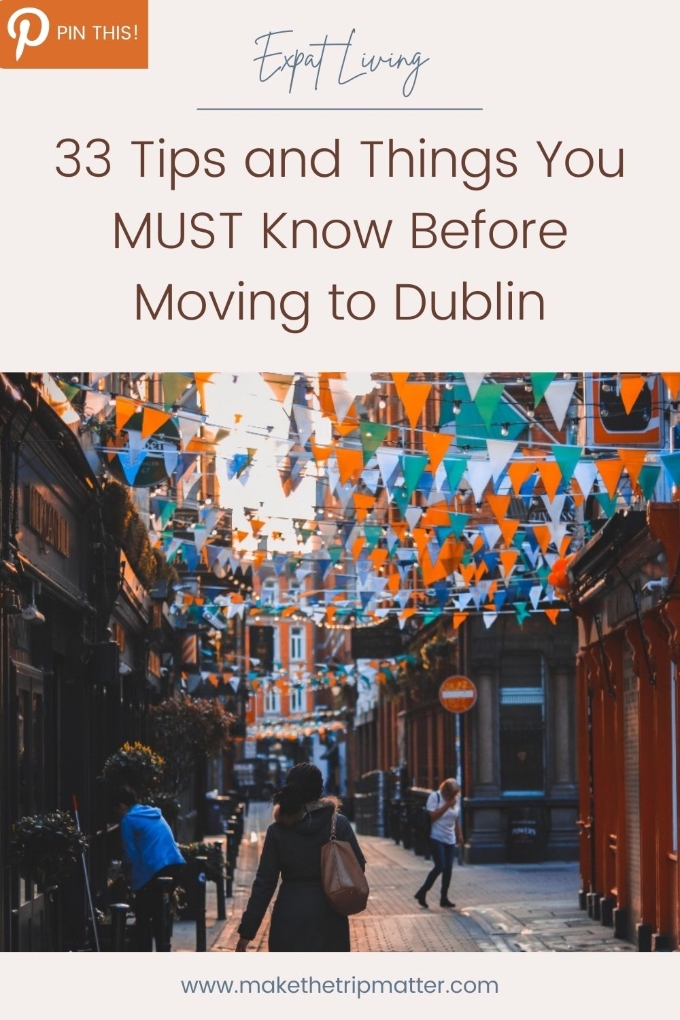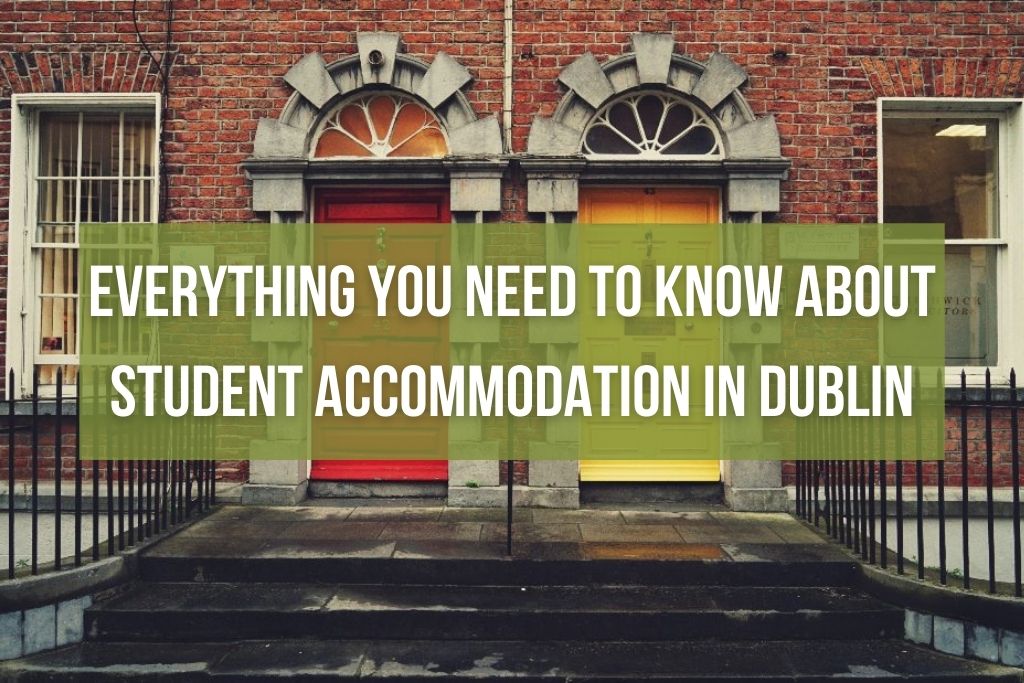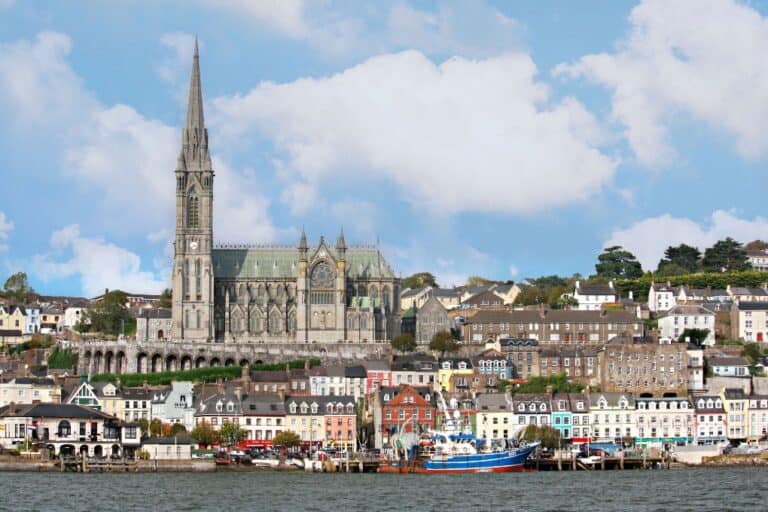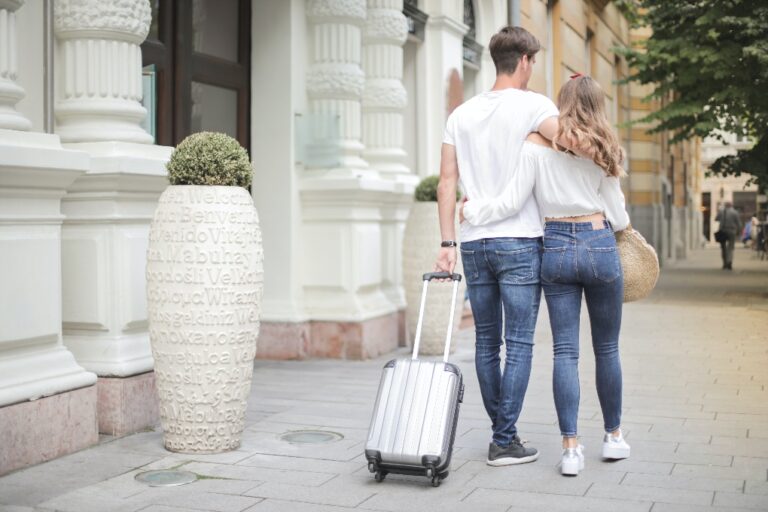33 Tips and Things You MUST Know Before Moving to Dublin

Ireland is a fantastic country to live in as an expat with plenty to explore and visit, excellent healthcare and school systems, and moderate weather year-round. When it comes to asking yourself “should I move to Dublin, Ireland?” there are a few things to know and consider first to make potentially moving to Dublin much easier.
It is definitely worth moving to Dublin for the culture and opportunity. But ultimately, you will need to factor in a few major things such as cost, location, and lifestyle. Plus, you will want to make a plan and checklist before moving.
Here are 33 tips and things you should know for moving to Dublin:
Jump To:
1. What to Know When CONSIDERING If You Should Move to Dublin
• Cost of Moving to and Living in Dublin
• What Kind of Salary Is Needed for Moving to Dublin
• Dublin’s Diversity and Inclusion Standards
• Weather in Dublin, Ireland
• Culture Differences and Slang to Learn When Moving to Dublin
• Pub Culture
• Things (People) Move Slow in Dublin
• The Pros and Cons of Moving to Dublin
• Should You Move to Dublin, Ireland?
2. What to Do BEFORE Moving to Dublin
• Make a Plan for Your Move to Dublin
• Secure Your Visa and/or Work Permit for Moving to Dublin
• Find a Job in Dublin
• Figure Out What Neighborhood in Dublin You Should Move To
• Secure Housing in Dublin
• Find the Best Schools for Your Kids
• Moving Items to Dublin
3. What to Do AFTER Moving to and Arriving in Dublin
• Apply for an Irish Personal Public Service Number (PPSN)
• Update to an Irish Driving License
• Figure Out the Dublin Public Transportation System
• Know How to Get To and From the Airport
• Get a New Phone Sim Card
• Set-up an Irish Bank Account
• Find Your Doctor/Dentist in Dublin
• Download Apps to Make Moving to Dublin Easier
• Set-up Your Day-to-Day Activities in Dublin
• Making New Friends as an Expat Moving to Dublin
• Explore the City of Dublin!
• Is Dublin Safe at Night?
• Find Your Favorite Dublin Pub
• Find Your Favorite Local Irish Restaurant
• Find Your Favorite Dublin Kebab Place
• Check Out Dublin’s Events and Entertainment
• Watch a GAA / Rugby Game
What to Know When CONSIDERING If You Should Move to Dublin
1. Cost of Moving to and Living in Dublin
Dublin is not a cheap city to live in. In fact, Dublin is not only the most expensive city to live in Ireland but one of the more expensive cities to live in the world.
Rent is the most expensive part of moving to Dublin with an average rent costing around €2,156/month (or about €539/week). Depending on where you come from, the cost of living in Dublin might not be far off from what you are used to, but it is certainly not cheap.
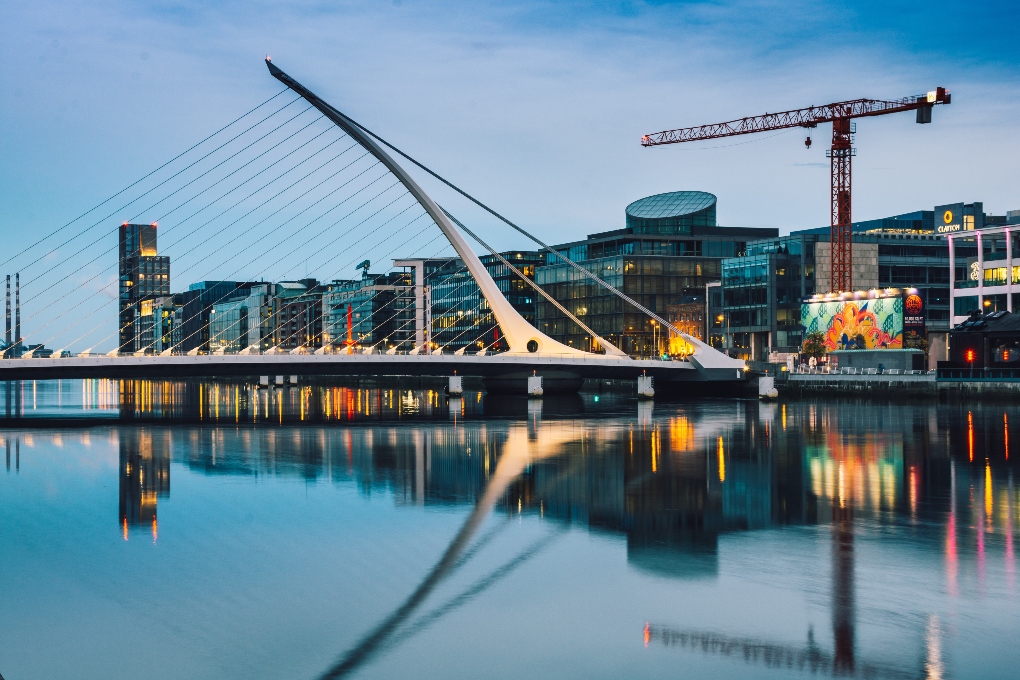
When considering if you should move to Dublin, Ireland you will need to take into consideration the cost of moving to Dublin. The cost of actually moving adds up quickly when you have to consider shipping and moving your items (and potentially a long way if you’re coming from somewhere far like the U.S.), figuring out what to do with any items or affairs you will leave behind, paying for visas and paperwork, transportation, housing security deposits, and set-up fees, etc.
For the Cost of Living in Ireland vs U.S. Comparison and Explanation, CLICK HERE
2. What Kind of Salary Is Needed for Moving to Dublin
The average salary in Dublin is approximately €45,200 per year. Salaries in Dublin can range from €11,400 (lowest average) to €202,000 (highest average). Depending on your lifestyle preferences and savings, the recommended salary range to aim for when moving to Dublin is €50-€60,000.
3. Dublin’s Diversity and Inclusion Standards
When moving to a new city or country it is important to feel comfortable not only with the culture but with the diversity and inclusivity of a place.
Dublin has become increasingly more diverse in the past few years, but it is still predominately Irish and European/white. Dublin is only about 5% non-white. Though Dublin has been voted the friendliest city in Europe a few times.

Dublin is fairly inclusive when it comes to LGBTQ rights. In 2015, Ireland became the first country to legalize same-sex marriage by popular vote. The LGBTQ community in Ireland is legally protected from discrimination, has adoption rights, and has the right to change legal gender by self-identification.
Ireland is still a predominately Catholic country and some rules and regulations reflect the religious influence. For those that are religious, there are MANY churches across Dublin to visit.
4. The Weather in Dublin, Ireland
Weather is another important factor for most people when moving to a new place as it affects mood, activities, and what you can do on a daily basis.
When moving to Dublin, you will need to factor in some rain. Dublin receives an average of 128 days of rain per year. I found that it doesn’t rain HARD frequently, but it is drizzly often and the skies (though actually often sunny) are always full of clouds.

For the most part, I found the temperature in Dublin to be very comfortable. The temperature in Dublin typically ranges anywhere from 38°F (3°C) to 67°F (19°C) and rarely dips below 30°F (-1°C) or goes above 72°F (22°C). The coldest months are November to February and the warmest months are June to August.
One of the hardest things for me to adjust to as an American moving to Dublin was that the sun set as early as 4pm during the winter and wouldn’t rise until almost 9am! I had a bit of a hard time with the lack of sunlight in the winter.
5. Culture Differences and Slang to Learn When Moving to Dublin
If you are moving to Dublin from a western culture, you shouldn’t have too hard of a time adjusting to the culture in Ireland. The biggest difference when moving to Ireland as an expat is the Irish slang. Even as a native English speaker, between the accents and slang it sometimes felt like the Irish were speaking a different language!
Learn a few of the key slang words before moving to Dublin to have an easier time adjusting to the culture. “Craic” for example, means “good fun” and is not someone offering you drugs.

Getting the shift = kissing or making out
Bang on = right on or correct
Gas = something that is funny or amusing
Bags = to make a mess of something
Gaff = house
Black stuff = Guinness
6. Pub Culture
A big cultural difference for many expats moving to Dublin is the Irish pub culture. There is a pub on just about every street in Dublin.
People are constantly meeting and hanging out in pubs at all hours of the day, including conducting some business meetings from pubs. Most events or group outings will also happen in pubs. The alcohol and pub culture is something to consider from a social and lifestyle perspective before moving to Dublin.
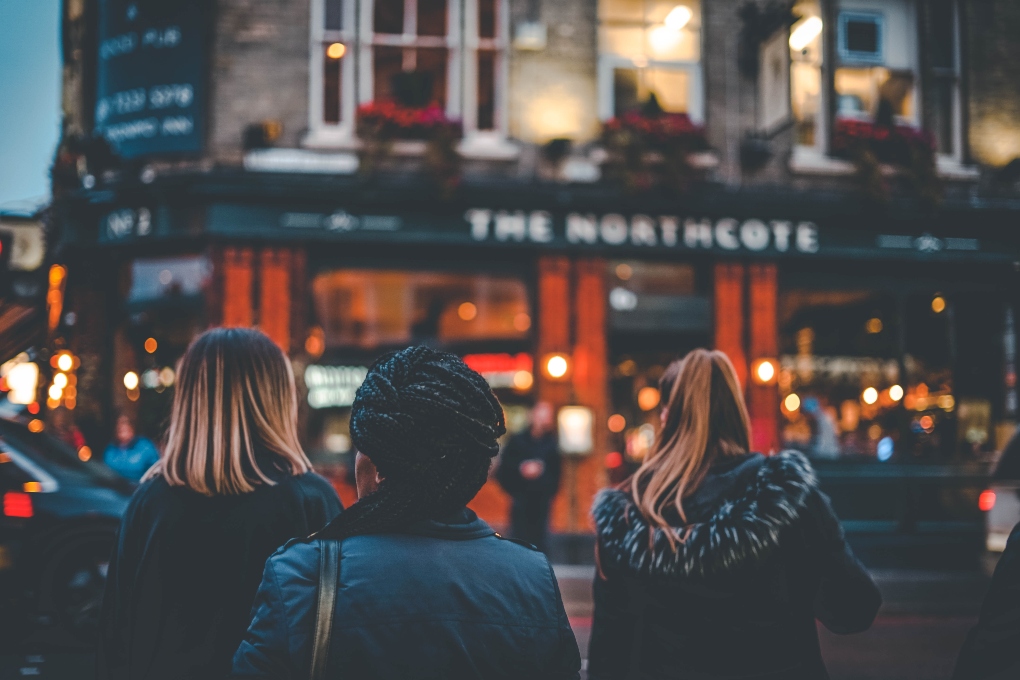
7. Things (People) Move Slow in Dublin
This one is a bit of a stereotype, and true nonetheless. It was something I had to get used to when first moving to Dublin. People move at a slower pace, whether that is with getting important paperwork through (get your permits in early!) or taking their time when hanging out at the pubs.
The slow pace of life in Dublin frustrated me at first (uptight American here!) but I actually grew to love it. The cultural norm of slowing down and enjoying the people you are with and the things you are doing is actually one reason I love living in Dublin.

8. The Pros and Cons of Moving to Dublin
When asking yourself “should I move to Dublin?” it is helpful to create a list of pros and cons. What is considered a pro vs. a con could be different for everybody, so think about what you want to get out of a new city and experience.
In addition to what has been mentioned above, a few things to take into consideration when creating your list of pros and cons for moving to Dublin are:
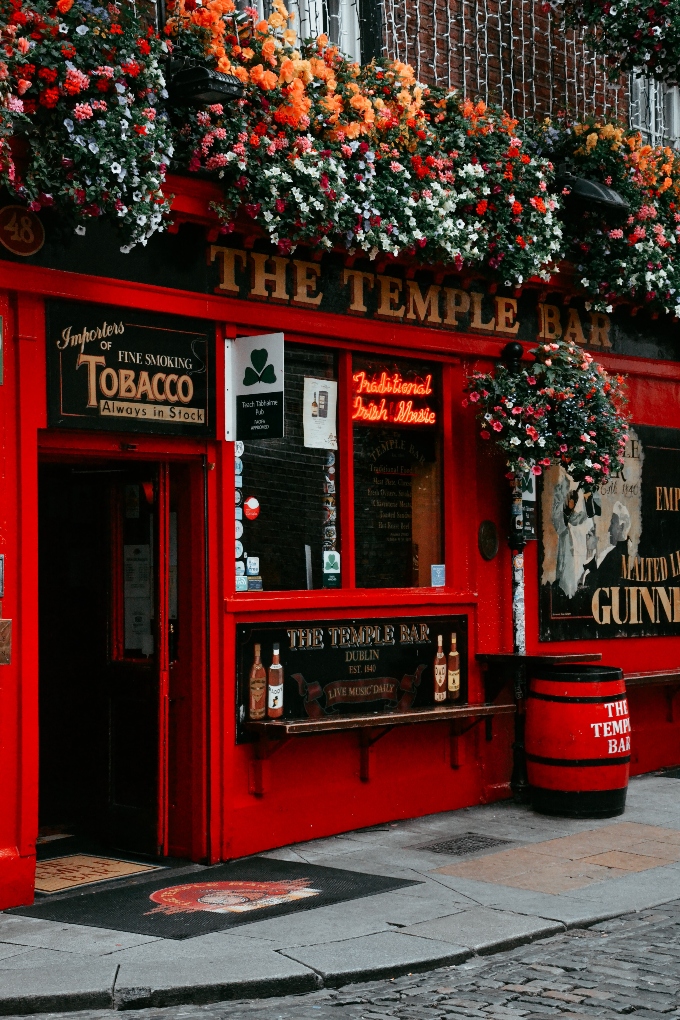
• The population of Dublin is approximately 1.4 million people, which can feel very populated to some but puts Dublin on the smaller size as far as “big” capital cities go.
• The most widespread religion in Dublin is Christianity.
• The economy of Dublin is one of the strongest in Europe in the past few years. Wages have been consistently rising and unemployment decreasing (currently around 5%).
• Irish people can get rowdy. Irish people are great fun, in my opinion! But, pub fights and messy ends of the night are not uncommon experiences when moving to Dublin.
• Safety can be a concern in any big city and Dublin is no exception. Though Dublin IS one of the safer big cities in the world. I had to exercise extra caution sometimes, but never felt unsafe in Dublin.
9. Should You Move to Dublin, Ireland?
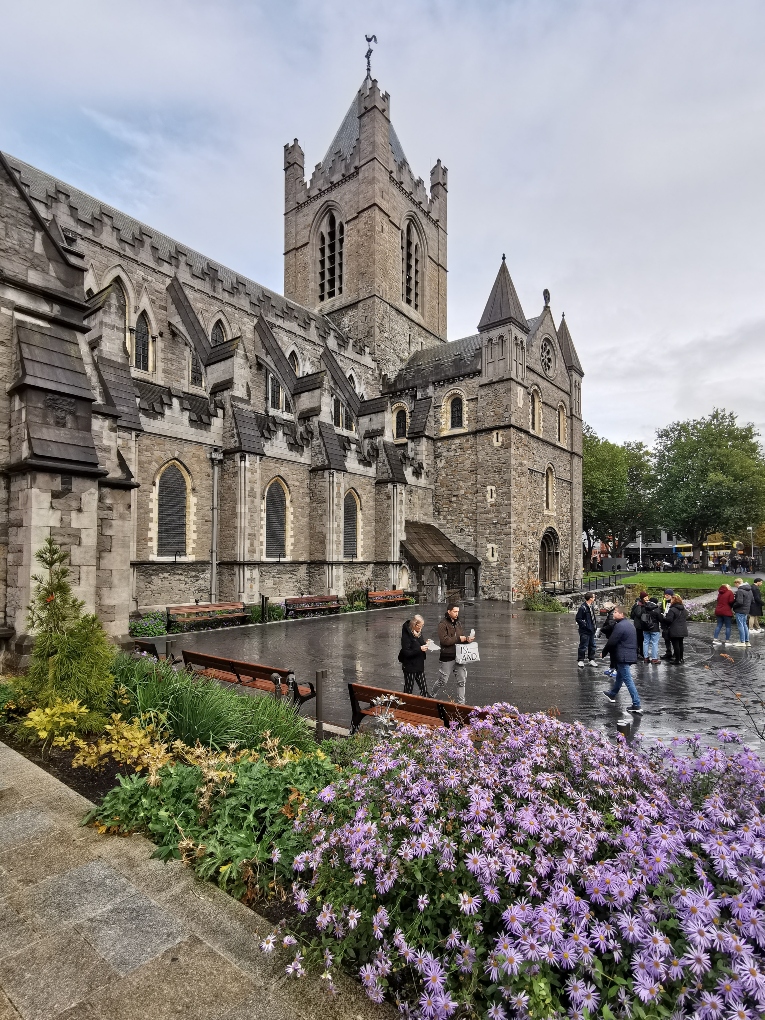
Of course, I’m biased when it comes to wondering if you should move to Dublin because I do think it is the best city in Ireland! However, Ireland is a wonderful country with many amazing cities. Do enough research before moving to Dublin to see if there isn’t another city you would rather be in.
Perhaps you want a smaller but still populated city with plenty to do and want to consider Galway (83,000) or Cork (population 210,000). Or, maybe an even smaller city such as Kinsale (population 5,000) or Dingle (population 2,000) is more your pace. Dublin is not the only place to move to in Ireland, so consider all your options.
What to Do BEFORE Moving to Dublin
10. Make a Plan for Your Move to Dublin
Moving is stressful in general, but moving to a new country can be especially difficult. Write out a step-by-step plan and moving to Dublin checklist for all of the things you will need to do at your current home, to prepare for the move, and once you get to your new city. Start planning for and taking action on your list ahead of time to have an easy, stress-free move to Dublin.
💡 TIP: Sign up here for the best FREE flight deals alerts – Scott’s Cheap Flights
Add your airport and keep an eye out for any flight drops or deals to Ireland.
11. Secure Your Visa and/or Work Permit for Moving to Dublin
Depending on where you are from, you may or may not need a visa to enter the country. If you do need a visa to move to Dublin and you plan to stay longer than 3 months, you will need permission to stay in the country with a long-term stay “D Visa”.
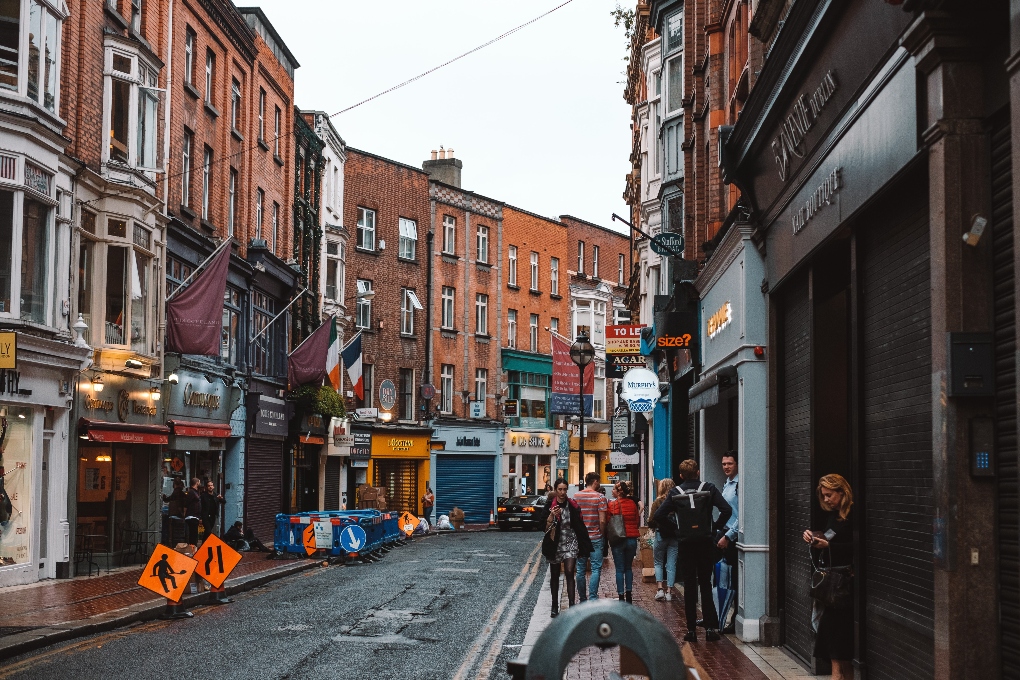
* To apply for an Irish visa, or to check if you will need an Irish visa, click here.
If you are a non-EEA national you will need to apply for an Employment Permit to work in Dublin. There are different types of employment permits based on what type of employment you will be pursuing.
12. Find a Job in Dublin
To apply for an employment permit you will need to receive a job offer before applying. If your company has offices in Ireland or can sponsor your move to Dublin, that will be the easiest way to secure a job.
Otherwise, to find a job in Dublin you can work with a headhunter, check Irish job boards such as IrishJobs or Indeed, and monitor in-demand jobs such as those in the technology, healthcare, or engineering fields.
For more information on finding and securing a job in Ireland as an American, CLICK HERE.
Or, are you looking to continue working for your U.S. company remotely abroad?
13. Figure Out What Neighborhood in Dublin You Should Move To
It’s hard to know what part of Dublin to live in if you are not familiar with the city. A few things to keep in mind are the location relative to your job, distance to public transportation, ease of access to things you need such as grocery stores and gyms, and where you’ll go for fun.
In Dublin, there is somewhat of a rivalry between the northside and the southside of the River Liffey. Though it’s getting to be less distinct now, the northside tends to be known for being a bit more underprivileged and “rough.” By now you can find nice neighborhoods on either side of the river, and the rivalry tends to be good-natured.
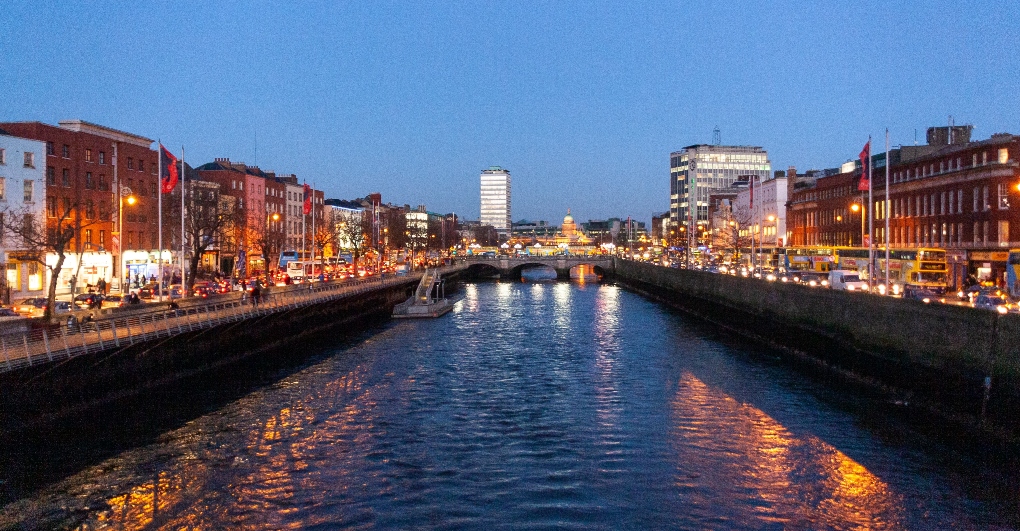
According to Crown Relocations, the following districts are the best neighborhoods for expats moving to Dublin:
- Ballsbridge
- Donnybrook
- Ranelagh
- Blackrock
- Dalkey
- Killiney
- Malahide
- Howth
- Castleknock
14. Secure Housing in Dublin
Once you have narrowed down what neighborhoods in Dublin you would consider moving to, the next step is to start the search for and secure your accommodation.
The best place to start is to search through general rental websites. Popular sites in Dublin include: Rentberry, Rent.ie, or Daft.ie.
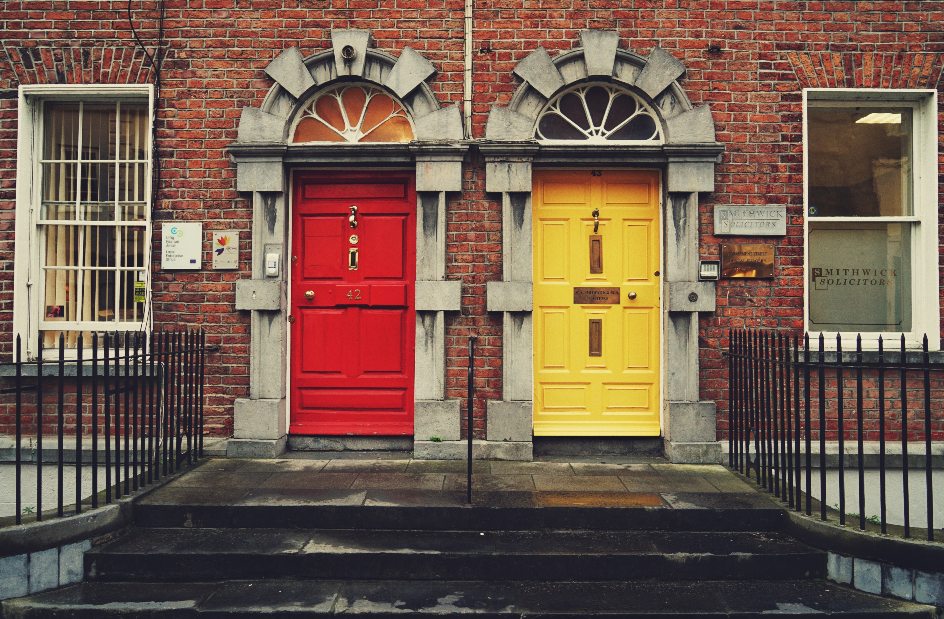
If you want a roommate, shared accommodation, or just more flexible leasing options, you could search Facebook groups such as Dublin Rent a Room with 55K members.
Are you a student moving to Dublin? CLICK HERE to read my guide to finding student accommodation in Dublin.
15. Find the Best Schools for Your Kids
If you are moving to Dublin with kids, you will want to find the best school to enroll them in. Luckily, the quality of education at public schools in Ireland is great.
Education is mandatory in Ireland for children from the ages of 6 to 16. State-funded (free) primary and secondary education is available to children legally resident in Ireland, or you can choose to send your child to a private school as well.
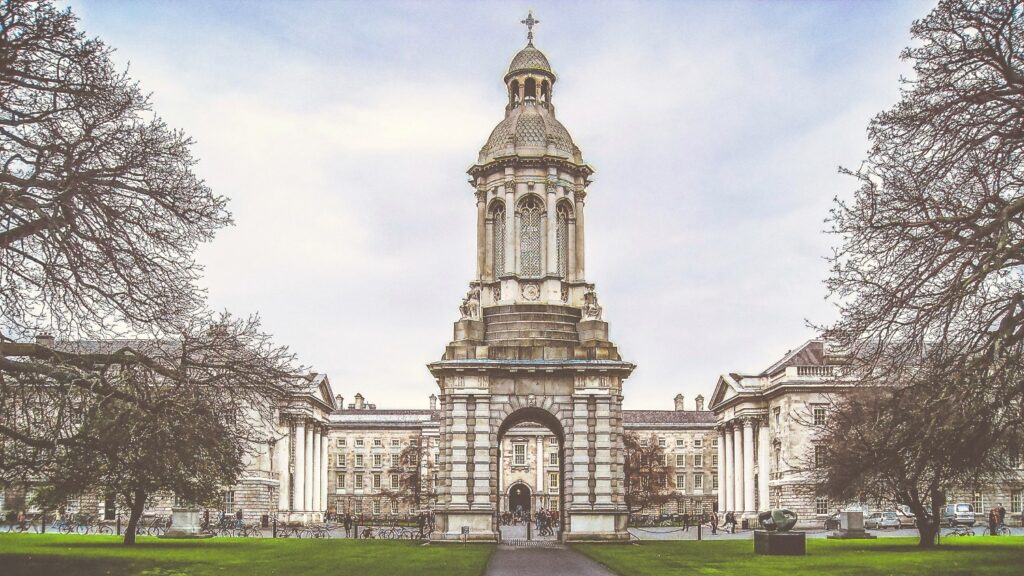
If you are moving to Dublin for college, there are a few great universities to attend. There are five public universities, the best of which is Trinity College Dublin.
16. Moving Items to Dublin
Whether you are just moving to Dublin from across Ireland or from across seas, you will need some kind of way to move your items. A company such as MoveHub will help you with an international move abroad.
What to Do AFTER Moving to and Arriving in Dublin
17. Apply for an Irish Personal Public Service Number (PPSN)
A PPSN is a number that the Irish government can use to identify you. You will need to give this number to your employer for your tax deductions. The PPSN will also give you access to important Irish services such as:
- Social welfare
- Public health services
- Driver licences
- Child immunisation
You can apply for your PPSN online at Welfare.ie.
18. Update to an Irish Driving License

If you have a license from the EU, EEA, UK, or a recognized state and you plan to stay in Ireland for less than a year and are NOT a resident living in Ireland, you will be fine driving with your foreign license so long as you also hold an international driving permit.
After a year, or if you gain Irish residency, you will need to go through the full driver licensing process to acquire an Irish license. Visit CitizensInformation.ie to learn more about fees, foreign licensing, and what you will need to do for your specific case.
Need a car when you arrive in Dublin?
My go-to car rental service in Ireland is Discover Cars. They compare prices across the leading car rental services to find you the lowest prices and best deals.
🚗 CLICK HERE TO SEARCH FOR YOUR RENTAL CAR
19. Figure Out the Dublin Public Transportation System
Does it sound too complicated to mess with foreign drivers licensing? Want to avoid buying a car on top of moving costs? Luckily, Dublin has a pretty decent public transportation system and is also a very walkable city. I could walk to most places in or around the city center in under 15-20 minutes.
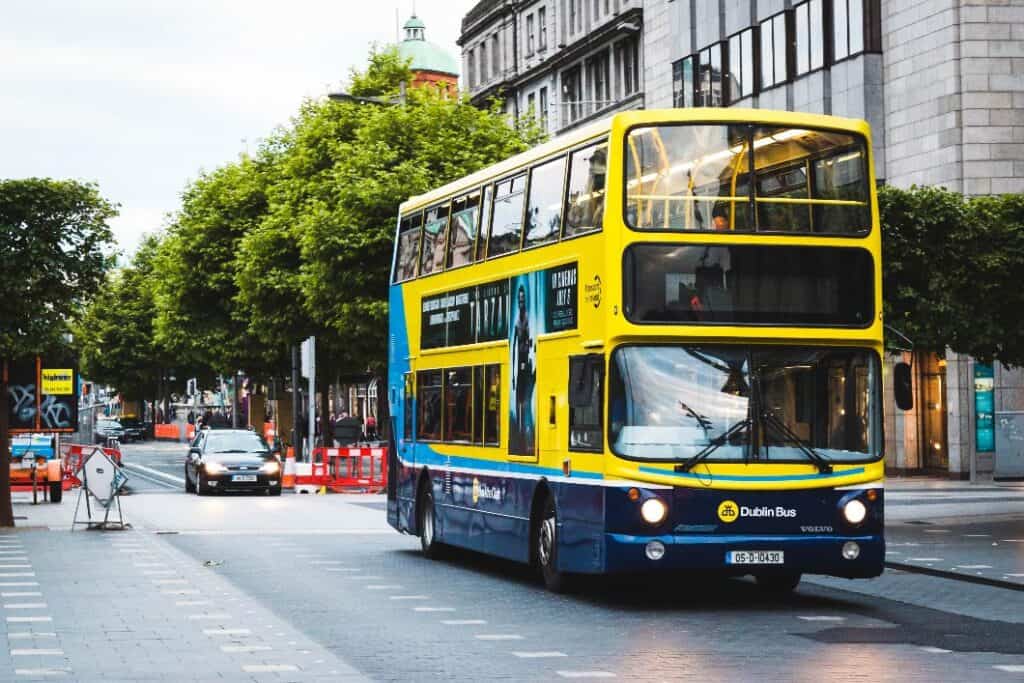
You can buy tickets for Dublin’s public transportation at the stations, on buses, or online. However, you will likely want to purchase a “Leap Card” if you plan to use Dublin’s public transportation frequently.
The Leap Card is valid for 1, 3, 7 days, or even monthly as needed and can be topped up with additional travel credit when required. This pass will save you up to 31% on your travel in Dublin and works with the DART, LUAS, Dublin Bus, and Airlink 747/757 services. It is very convenient for an expat moving to Dublin.
20. Know How to Get To and From the Airport
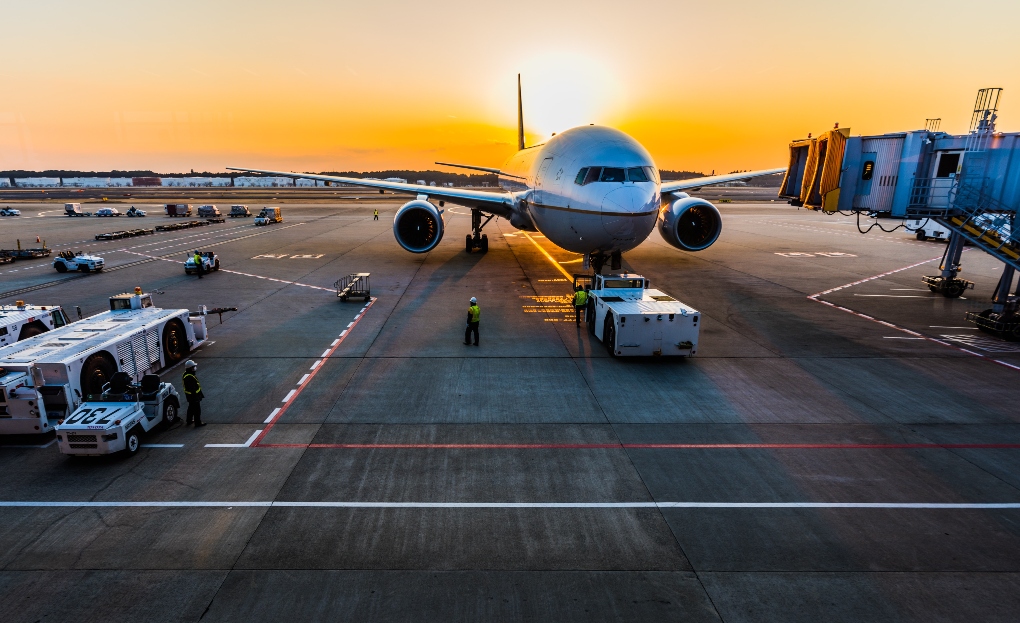
The Dublin International Airport is about a 20-minute drive from the city center and convenient to access. When you first arrive in Dublin you will likely want to just hire a taxi to take you to your accommodation, this will be the easiest option for those bringing a lot of stuff with them.
Otherwise, the 700 Aircoach is the bus that consistently (usually every 30-minutes) runs from the city center directly to the airport. Or, Bus Eireann services the Greater Dublin Area.
21. Get a New Phone Sim Card

When you move to Dublin you will want to get an Irish sim card to be able to use your phone as normal without international fees. The easiest way to do this is to purchase a pay-by-month sim card or to take out a new contract with an Irish phone provider.
I paid about €20 per month with my sim card, and they are convenient to find at most local phone shops or drugstore-type outlets. Vodaphone and Eircom are the top companies for phone service in Ireland.
🐶 Moving to Ireland with a pet?
–> Check here for what you need to know when moving to Ireland with a dog.
22. Set-up an Irish Bank Account
You can open a bank account as a resident or a non-resident of Ireland but you will need proof of identity and proof of address to apply. While working in Ireland you will need a bank account to get paid, pay your bills, or buy property. It will also be useful as wages usually need to be paid to a local account and to avoid foreign transactions fees while you are making money in euros.
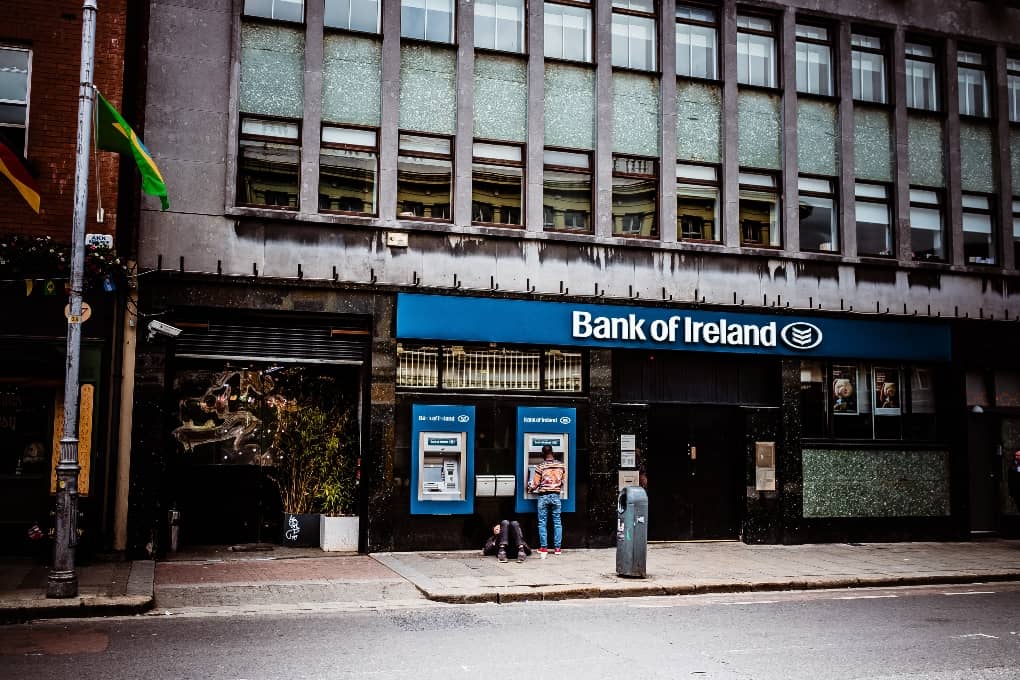
A few of the top banks in Ireland are:
• Bank of Ireland Group
• Allied Irish Banks (AIB)
• Ulster Bank Ireland
23. Find Your Doctor/Dentist in Dublin
The standards of healthcare for expats that are moving to Dublin are very high. The local health insurance system is affordable and generally offers great care.
Expats in Dublin who have legal papers (employment permits, students, etc.) and intend to live in the country for a minimum of one year can apply for a GP Visit Card or a Medical Card. Many expats wrongly assume they will not qualify for any Irish healthcare.

If you are willing to pay, you will be able to find and use a GP during the application process. Finding a local GP and dentist is mostly a matter of personal preference and location. It is important to find them at the beginning of the process of moving to Dublin before there is any real emergency or need.
Alternatively, as a digital nomad, I use and recommend SafetyWing medical and travel insurance. It is affordable, reliable insurance that is specifically designed for digital nomads who will be traveling long term. However, it mostly covers emergency situations. If you are healthy and willing to forgo some routine check-ups, or perhaps not settling in Dublin forever, SafetyWing could be a great budget option for you.
For an idea of how much insurance will cost you while living abroad, use the tool below. Or, to purchase insurance directly from SafetyWing, CLICK HERE.
* It is also important to note that you may need private health insurance to apply for some visas and residency prior to moving to Ireland as well.
24. Download Apps to Make Moving to Dublin Easier
There are a few local Dublin apps that you will want to have access to. Here are a few of my favorites:
- Journey Planner – Provides timetable and map information for all public transportation in Dublin and across Ireland. It provides plans and route information for trains, buses, trams, ferry, and taxi services.
- Free Now – The taxi-hailing equivalent of Uber. Uber exists, but Dublin does not allow private vehicles to operate so you will end up calling a taxi. Free Now is the popular Uber alternative to either schedule or hail a taxi in real time.
- Leap Top-Up – To easily add money to your public transportation Leap Card.
- Just Eat Ireland or Deliveroo – Food delivery apps.
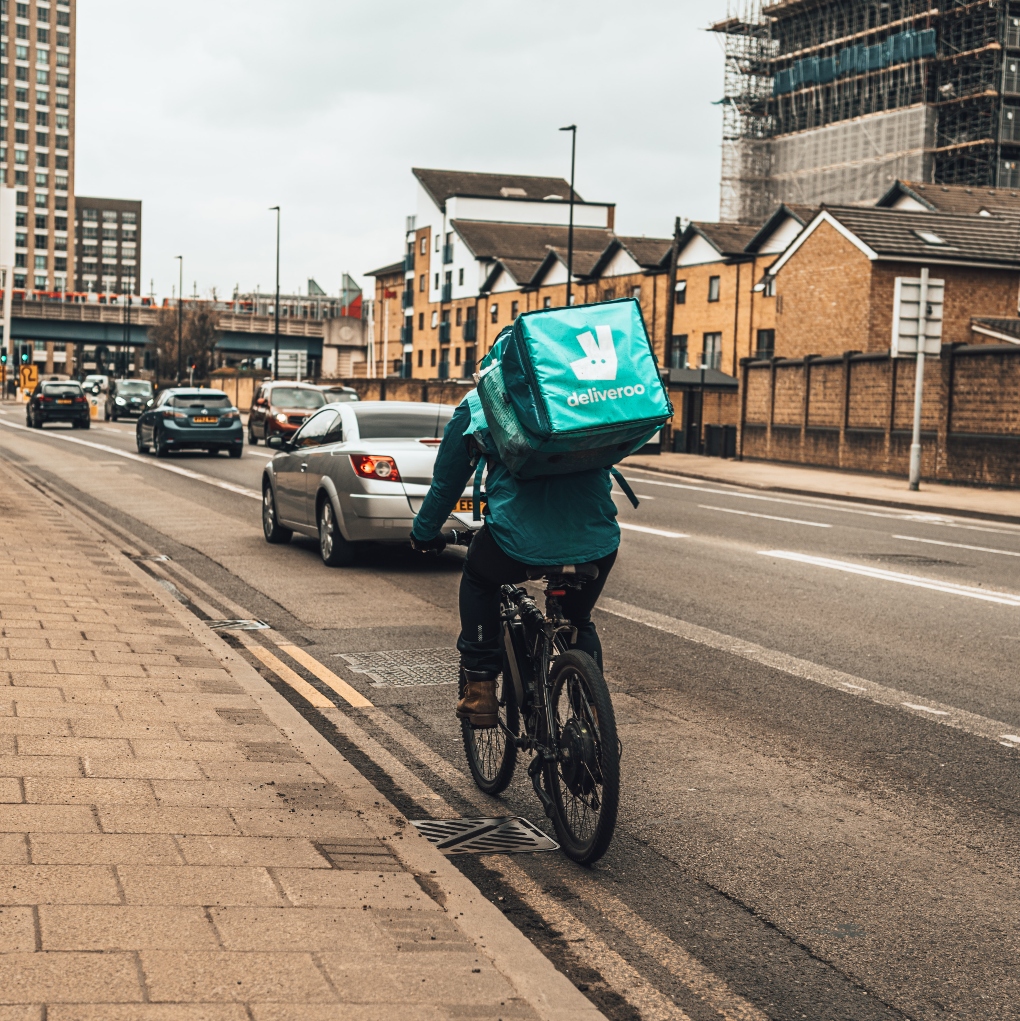
25. Set Up Your Day-to-Day Activities in Dublin
Once you arrive in Dublin after your move you will want to set up the little things that get your day-to-day life feeling “normal”.
First, when moving to Dublin I visited the local nearby grocery shops and convenience stores. Stop into the nearby drug stores, clothing shops, or anything you might need to frequent semi-regularly.

Find a local coffee shop and/or a favorite restaurant to get familiar with. Join a local gym or find fitness classes and studios. This is not only a great way to maintain your health and fitness, but you might be able to make some friends as well.
26. Making New Friends as an Expat Moving to Dublin
It can be challenging to make friends when moving to a new city and especially a new country. The Irish, while very friendly, do tend to keep to themselves beyond the pubs, so you will have to make a special effort to get involved in your new community.
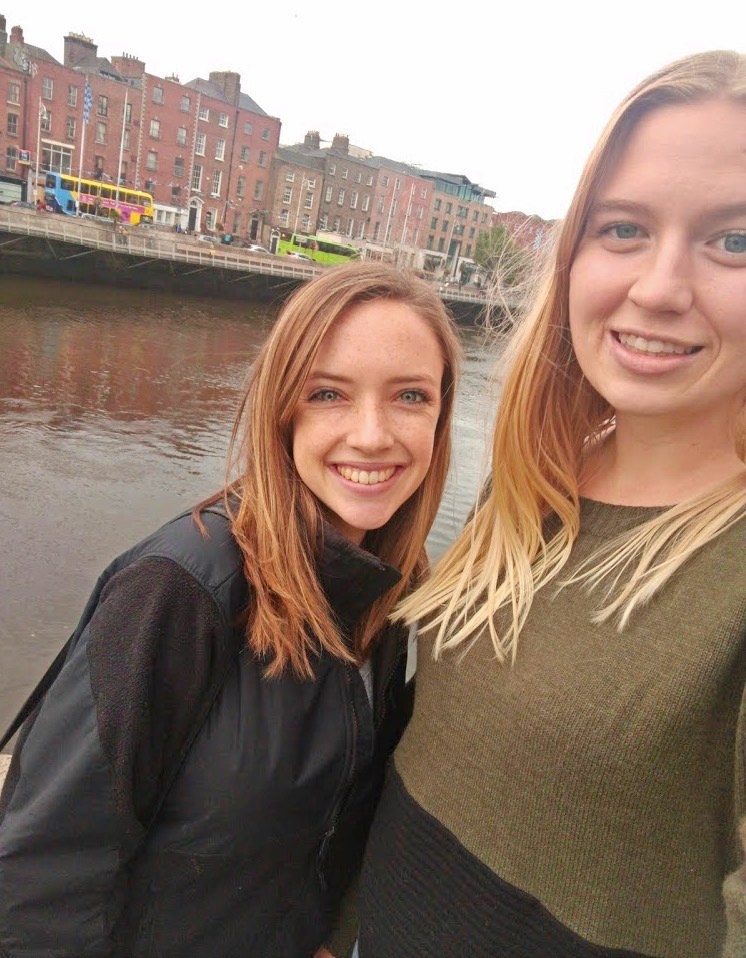
Join as many groups as possible through Facebook, Meetup, etc. for local events and activities. It might be easier to make friends with other expats living in Dublin first, and then branch out into meeting their friend groups.
27. Explore the City of Dublin!
After settling in from your move to Dublin, you undoubtedly will want to explore your new city.
You should tour all the best basics of Dublin such as the Guinness Storehouse (this was my favorite tour for a number of reasons, but mostly because it ends with a sky view of Dublin and a pint of Guinness) and Jameson Factory, visit the Book of Kells in Trinity College Dublin’s campus, and view the Dublin Castle.
For a few more unique activities in Dublin read my guide on 37 surprisingly fun things to do as a couple (or not!) in Dublin.
28. Is Dublin Safe at Night?

Yes, overall Dublin is quite safe at night. As a young female I hardly ever felt unsafe walking around the city of Dublin alone.
Of course, always stay aware and use your common sense to stay out of potentially dangerous situations that can come with any big city (for Dublin at night that might mean potentially rowdy drunk people).
👉 CLICK HERE FOR THE TOP 50 BEST THINGS TO DO IN DUBLIN AT NIGHT
29. Find Your Favorite Dublin Pub
How can you move to Dublin without finding a local favorite pub to frequent? The answer is you can’t, of course! Every Dubliner has a pub they swear by, so you can make it a mission to try out as many nearby pubs as possible when moving to Dublin.
I suggest trying out a Dublin pub crawl tour or creating a few of your own pub crawls. You will likely meet some characters, and hopefully make a few new friends along the way while having some good craic!
30. Find Your Favorite Local Irish Restaurant
After moving to Dublin you will need to try the local Irish cuisine. My favorites are an Irish lamb stew, full Irish breakfast, Guinness pie, or Irish soda bread.
Some of the best restaurants in Dublin to try Irish food are: Sheehan’s, The Winding Stair, Trocadero (fine dining), or The Brazen Head (oldest pub in Dublin).
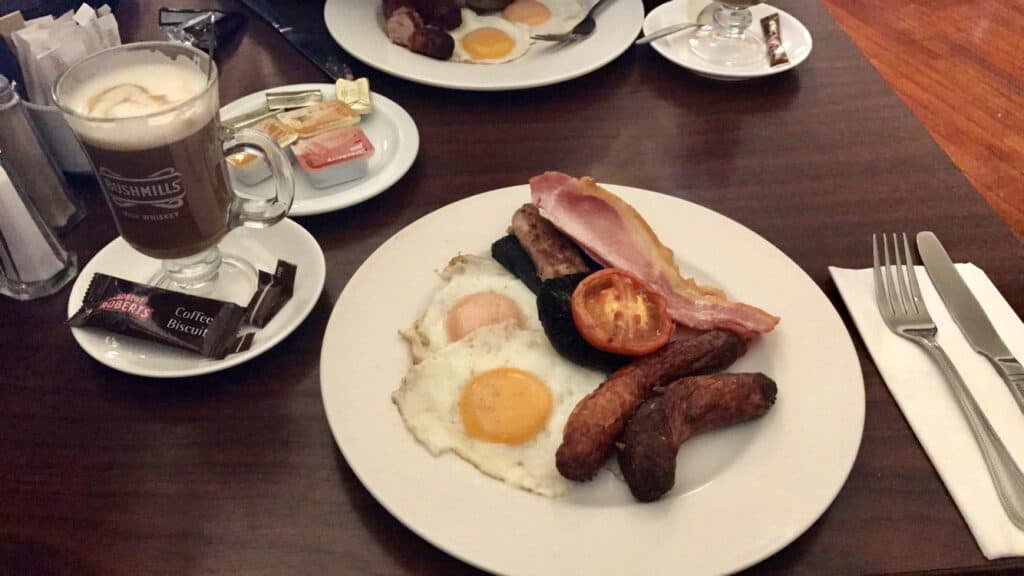
31. Find Your Favorite Dublin Kebab Place
Kebab is the ultimate drunk food of Europe and anyone moving to Dublin should have their favorite, nearby kebab place. Try out Saray Kebab House (noted as the best kebab in the city) or Kebab House.

32. Check Out Dublin’s Events and Entertainment
Dublin is constantly hosting a variety of events, shows, plays, concerts… you name it! Keep an eye on these venues for events in Dublin: Abbey Theater, Bord Gáis Energy Theater, or these concerts in Dublin.

33. Watch a GAA / Rugby Game
The Gaelic Athletic Association (GAA) is Ireland’s largest sporting organization and encompasses sports such as Gaelic football and hurling. Watching a GAA game or even a rugby game (popular in Dublin) is a unique thing to do after moving to Dublin from abroad.

Looking for resources to use for your next trip or move abroad?
CLICK HERE for my favorite travel and expat tools!
Summary of Moving to Dublin
Moving to Dublin is incredibly exciting, and I can’t wait for you to start your journey! Make sure you are well-prepared for the move and create a solid plan. The most important things to prepare ahead of time are budget, paperwork and permits, and starting your housing search.
If you have any questions about your move to Dublin, reach out to: janelle@makethetripmatter.com
RELATED POSTS:
☘️FAQs About Ireland☘️
✈️ Where Can You Find the BEST Flight Deals to Ireland?
1. Scott’s Cheap Flights – FREE flight deals alert, works best if you can be flexible
2. Skyscanner – FREE search engine, great for budget flights + deal
❗Is Travel Insurance Required in Ireland?
No, it’s not.
However, it’s always recommended to have travel insurance any time you travel in case of injury, accident, lost luggage, missed flight, etc. The best and most affordable travel/expat insurance is Safety Wing.
>>>CLICK HERE FOR INFO
☔️ When Is the Best Time to Visit Ireland?
Summer (June-August) – is the warmest and rains the least but you will have the most crowds.
Spring (March-May) or Fall (September-November) – are cooler and have more rain but you will beat the crowds and see some incredible wildflowers (spring)/greenery (fall).
🏠 Where Should You Stay in Ireland?
Hotels, hostels, vacation rentals, and house sitting are all available in Ireland for accommodation. My top recommendations for each are:
• Booking.com
• Hostelworld
• Vrbo (usually better options than Airbnb in Ireland)
• Trusted Housesitters (watch a home/pets in return for a FREE place to stay)
☘️ Where Can You Find Tours?
I found incredible tours in Ireland >>>HERE for private and guided group tours of both the most popular attractions and ones that fit your specific interests.
🚘 Should You Rent a Car in Ireland?
I always tell my friends and family to rent a car in Ireland so that they don’t miss out on the gorgeous scenery and wonderful things to do in between the big cities! However, if you plan to stay only in the cities, then you should be fine getting by with buses and walking.
>>> What to know about driving in Ireland
>>> The best car rental in Ireland
🍻 Make sure to try out the pubs! Even if you don’t drink, the atmosphere, live music, and friendly people are very uniquely Irish.

